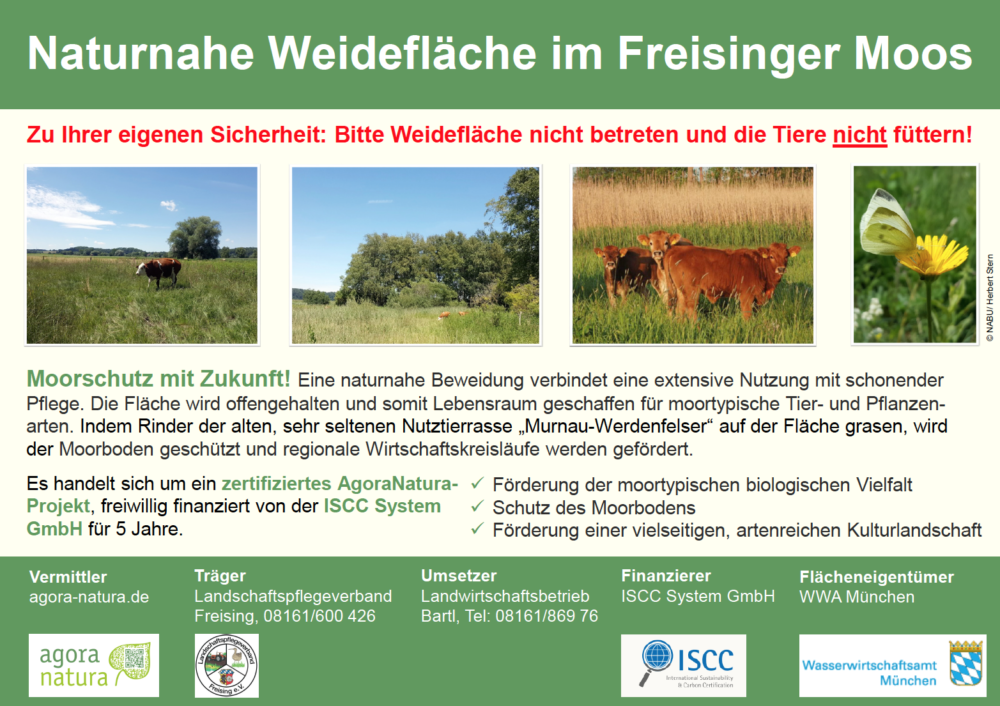August 20, 2020
Bavaria’s largest low-lying wetlands “Freisinger Moos” are suffering: the fragile habitat is threatened by invasive species that replace rare forest and shade plants, dry up the wetlands and whose increasing growth leads to a sharp decline in biodiversity. This is why ISCC has decided to support the landscape conservation organisation in Freising in restoring the landscape and former biodiversity in Bavaria’s precious wetlands. Through grazing, the ancient and very rare breed of cattle “Murnau-Werdenfelser” prevents the wetlands from becoming overgrown by invasive species and keeps them free for rare, native plants. It is a pilot project designed to set a precedent. The livestock grazing can protect the fragile landscape much more effective than manual labour could ever do.
Restoring the former biodiversity is a top priority in the conservation project. Wetlands are highly biodiverse ecosystems with an immense variety of species, including insects, amphibians, reptiles, birds, fish and mammals. The interaction between shallow water, high levels of nutrients and dense vegetation of rare forest and shade plants is ideal for the development of many organisms.
Think global – act local
We are pleased to contribute to the recovery of the highly biodiverse “Freisinger Moos” and hope to inspire more companies and individuals to support local environmental initiatives.
In Germany, conservation projects can be found and supported via the online market place Agora Natura (www.agora-natura.de).
Want to learn more about the project? Please click here to read the article in the German magazine “Süddeutsche” about the conservation project (in German).
The official sign at the grazing area in the Bavarian wetlands “Freisinger Moos” (in German)
